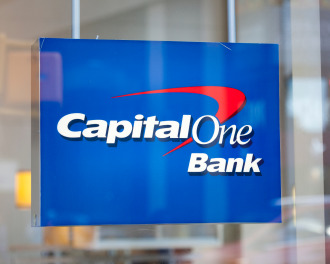BestCreditOffers.com is an independent, advertising-supported website which receives compensation from the credit card issuers and companies whose offers appear on the site. Compensation may impact how and where products appear on our site, including, for example, the order in which they may appear on the site pages. BestCreditOffers.com does not review or list all available financial or credit offers.
See if you pre-qualify for any CREDIT OFFER
Step 1: Select Your Current Credit History
FICO score: less
than 550
FICO score: 550-639
CREDIT HISTORY
CREDIT HISTORY
CREDIT HISTORY
Check it now
Step 2: Bankruptcy Status
Have you ever declared bankruptcy?
I have a bankruptcy discharge:
Step 3: Active Accounts
Do you currently have active bank accounts? You can select more than one account.
Step 4: Select Your State
Please select the state you currently reside in:
Step 5: Active Credit Accounts
Please select credit accounts you currently have or have had in the past two years.
Why Should You Know Your Credit Score?
Credit reports and credit scores are an important part of our financial wellbeing. You will need to know your credit score when you are getting ready to apply for a new credit card, when you rebuild credit or you're trying to maintain your good score, when you manage your personal finances, and when you suspect identity theft. All those things are essentials of our financial stability.
When you know your FICO score it is easier for you to sift out credit cards you won't qualify, and find those you have high chances to get approved for. Checking your credit score and credit reports regularly can help you know where your credit stands and whether you are doing everything right or you need to change your financial behavior. Check your credit scores at least once every twelve months to have control over your credit and financial life.
Personal Bankruptcy and Credit Cards: Is There a Way to Restore Credit?
When you file for bankruptcy, whether it is Chapter 7 or Chapter 13 bankruptcy, your credit will be affected. The bankruptcy will stay on your credit history about 10 years. However, it does not mean you won't be able to rebuild your credit and get a new credit card again. In fact, after your debts are discharged, you can start getting credit card offers in the mail again in as few as three months. And you can actually get approved for a low limit secured credit card within a month of the debt discharge. Secured credit cards are good for those coming out of bankruptcy. It will be a smart decision to get a secured credit card and start making regular, on-time monthly payments to rebuild your credit. Do it for about a year and then you may get a regular, unsecured credit card.
Personal Banking
Personal banking is everything a bank has to offer to the consumers. It includes such products and services like auto and personal loans, debit and prepaid cards, credit cards, checking and savings accounts, online account access, and other products. Personal banking programs help you keep track of your accounts, manage them conveniently on the go, and stay on top of your finances.
As part of personal banking, credit cards play a significant role in our lives and financial wellbeing. They help us build credit scores and therefore help us qualify for other personal banking products at better terms, for example get a mortgage at a lower rate. So, it is important to manage credit cards responsibly as any other personal banking product.
Can a Place of Residence Influence Your Chances of Approval?
Banks and lenders cannot turn down your application because of your address as it is against the law. However, if your current place of residence does not match with the one on your reports, issuers may deny your application. Also, lenders can reject your credit card application if they believe identity thieves are perpetrating fraud.
Another thing to consider when you are applying for a credit card or for a loan is availability. Some credit card offers or loans simply may not be available in the state you reside. So, make sure the product is available in your area before you apply. Also, your place of residence may determine which of your credit reports (or all three of them) will be checked when you apply for a credit card. And since credit scores tend to be different with different credit bureaus, this may lower or increase your chances of approval for a credit card.
Credit Card Application Rules
When applying for a new credit card, you may want to make sure your application has a high probability of being approved. For that, you will need to make an analysis and prepare your strategy. First, find out how may cards are allowed per person by the bank you are going to apply with. For example, AmEx allows only four active credit cards at a time; while Chase and Citi won't limit you to the number of cards you can have, you will be limited to the overall credit extended across all Citi credit cards. Second, find out how often you can apply with a particular bank. For example, Chase will automatically decline your application if you've opened five credit cards with any issuer over the previous 24 months. And the third, if you are after sign-up bonuses, make sure you are eligible. For example, AmEx has strict rules that allow to earn a sign-up bonus on a personal card only once. Other issuers usually allow earing promo bonuses after a waiting period. Knowing all those nuances will help you lower the risks of being denied.
OUR EXPERTS ABOUT THE WORLD OF CREDIT CARDS:
COME GET IN TOUCH WITH US
Never miss a new article, review or a credit product. Follow us in social networks, leave comments, and share your thoughts. Subscribe to receive latest news and trending offers on the credit card market to find the credit card that will save you money and give you perks and rewards.
Please specify the following:All these fields are optional
Thank you for providing this information! We will make sure our letters are useful for You.


